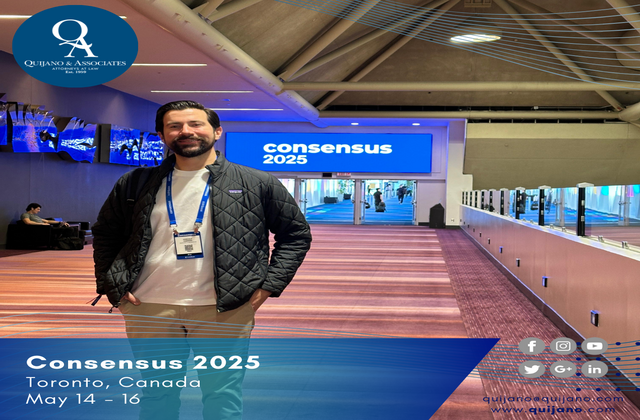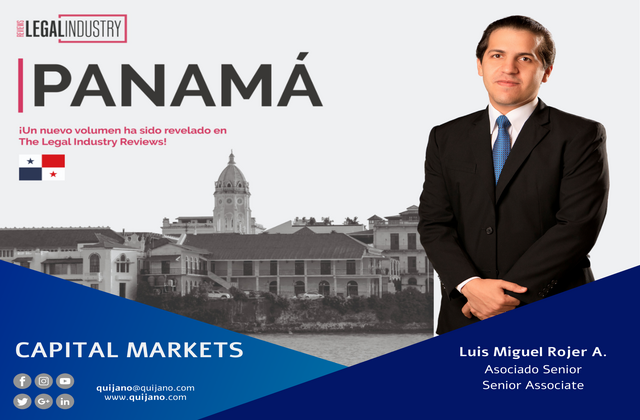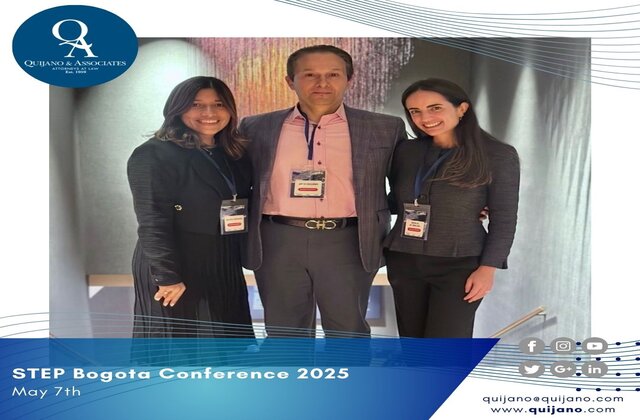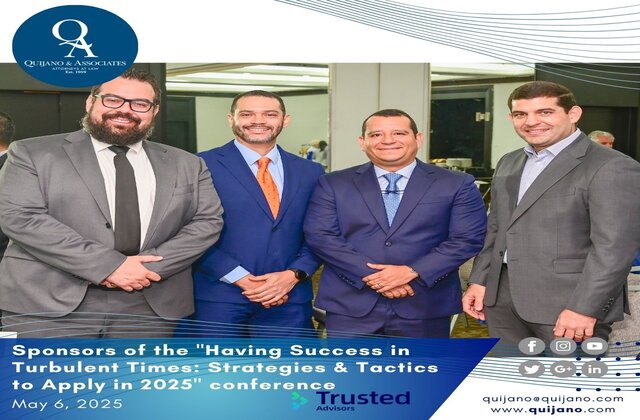Interview for Lex Latin: “Economic Substance: What is this Caribbean tax regulatory trend?”
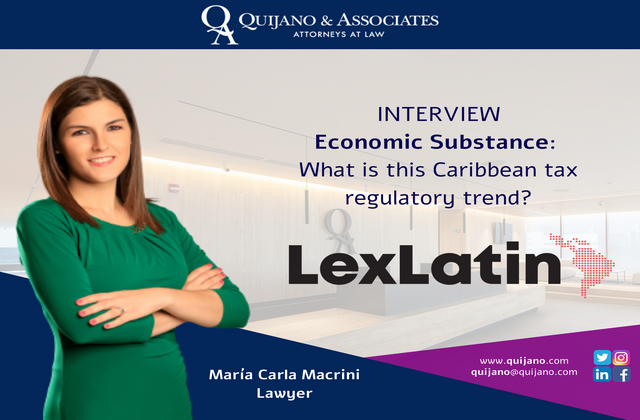
“It helps to understand the activities carried out by a foreign company and the tax impact that its activity entails”, María C. Macrini of Quijano & Associates addresses the challenges and opportunities in this matter.
Shortly before the pandemic, Caribbean jurisdictions such as the British Virgin Islands (BVI), Belize and the Bahamas were making efforts to build a new regulatory defense against tax evasion. This can be translated into meeting the requirements and obligations imposed by the European Union, an important market for the region.
María Carla Macrini, a specialist of the International Corporate department of Quijano & Associates, explains:
“We can define economic substance as the essence of understanding the activities carried out by each entity and the tax impact that such activity entails.”
According to Macrini, an Associate of the full-practice law firm, this figure helps to define whether the company is obliged to comply with the tax obligations in the country where it carries out its activity or, failing that, it must face the tax authority in the jurisdiction where the company is incorporated, thus avoiding the lack of fiscal commitment.
In the economic reactivation plans in the region, this is a trend that will pay off in the medium and long term. In an interview with LexLatin, the lawyer explains that the figure of economic substance promotes that companies seeking to expand may do so, but properly organized.
The challenge, meanwhile, in the opinion of the expert in transactional operations, is to continue investigating the scope of this figure and to educate businessmen and investors “on the importance of complying with the new regulations, in order to have tax transparency, an issue closely related to the activities carried out by the entity”.
The regulation around the economic substance is provided in the regulatory framework of a law. This trend is pioneered in the region by the British Virgin Islands, as the jurisdiction with the most experience in this area. Other locations where this approach is being developed are the Marshall Islands, Nevis, Cayman Islands and, soon, the Seychelles.
When asked about the possibility of other Latin American countries adopting this approach, María Carla Macrini points to Panama as the best candidate. For the specialist, the Central American country, due to its infrastructure and professionalized population rate, is the best candidate to become “the most prepared offshore center to face this phenomenon”, she points out.
As this trend evolves, the expert insists on a recommendation for any potential investor or company with plans to expand in the Caribbean region:
“The key is to address the questions, which are various and very diverse, based on three key areas: the relevant activity, the source of income generation and verifying whether or not there are tax commitments to be met in the country of operation.”
The original interview was conducted in Spanish, and may be read in Lex Latin’s website: https://lexlatin.com/entrevistas/sustancia-economica-en-que-consiste-tendencia-regulatoria-tributaria

